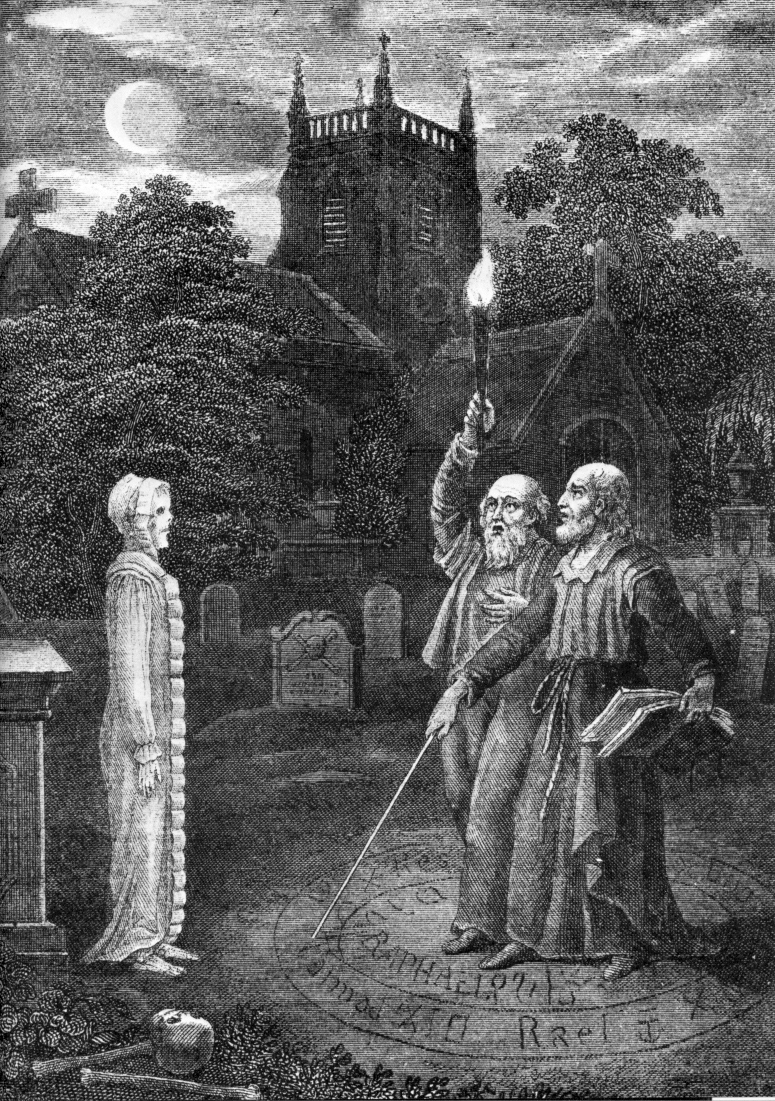
British Museum
Isaac Bickerstaff was a pseudonym used by the satirist Jonathan Swift in a hoax predicting the “infallible” death of John Partridge, a well-known 18th-century astrologer and almanac maker. In his almanacs, Partridge predicted the deaths of well-known people throughout the coming year; Swift’s idea was that publishing a prediction about Partridge’s own death would be a way to express his displeasure with Partridge’s attack on the “infallible church” in the 1708 issue of his Merlinus Almanac.
Pretending to be an astrologer himself, in his “Predictions For The Year 1708” Bickerstaff writes:[1]
Partridge responded by publishing a “blustering and labored attempt” to laugh off Bickerstaff’s prediction, which only succeeded in keeping the joke alive in the public imagination. He ended with a couplet that may have determined Swift to continue with his hoax:[2]
His whole Design was nothing but Deceit,
The End of March will plainly show the Cheat.
Within hours of Partridge’s predicted death on 29 March, Swift published a letter under the title of “The Accomplishment of the First of Mr. Bickerstaff’s Predictions”, in which he writes not as Bickerstaff but as a former officer in the Revenue Service and a friend of Partridge’s, confirming that the latter had died, preceded by his “Elegy” which begins:[2]
Here, five Foot deep, lies on his Back,
A Cobler[a]Before becoming an astrologer Partridge had worked as a cobbler.[3], Starmonger, and Quack;[b]Partridge also practised as a quack doctor.[3]
Who to the Stars in pure Good–will,
Does to his best look upward still.
Weep all you Customers that use
His Pills, his Almanacks, or Shoes;
And there the matter may have ended, had Partridge recognised Bickerstaff’s attack for what it was, an April Fools’ joke – of which Swift was very fond – and decided instead to respond by publishing his “Squire Bickerstaff detected; or, the astrological impostor convicted”.[2] In his final pronouncement as Isaac Bickerstaff, Swift ends the hoax by attempting to prove that Partridge must indeed be dead whatever he might say to the contrary, and may even have practised necromancy
Form of magic in which the dead are re-animated and able to communicate with the sorcerer who invoked them, just as they would if they were alive. on himself:
Bickerstaff goes on to airily dismiss the fact that Partridge apparently continues to write almanacs after his death by saying:
Aftermath
As a result of Partridge’s reported death, the Company of Stationers applied to the Lord Chancellor for the exclusive right to continue publishing a Partridge’s Almanac, which they were granted despite Partridge himself subsequently appearing in court in an attempt to restore his trade name;[3] “as an almanac-maker [he was] truly ‘dead’ ”.[2] By 1710 Partridge was thoroughly discredited as an astrologer and physician.[2]
